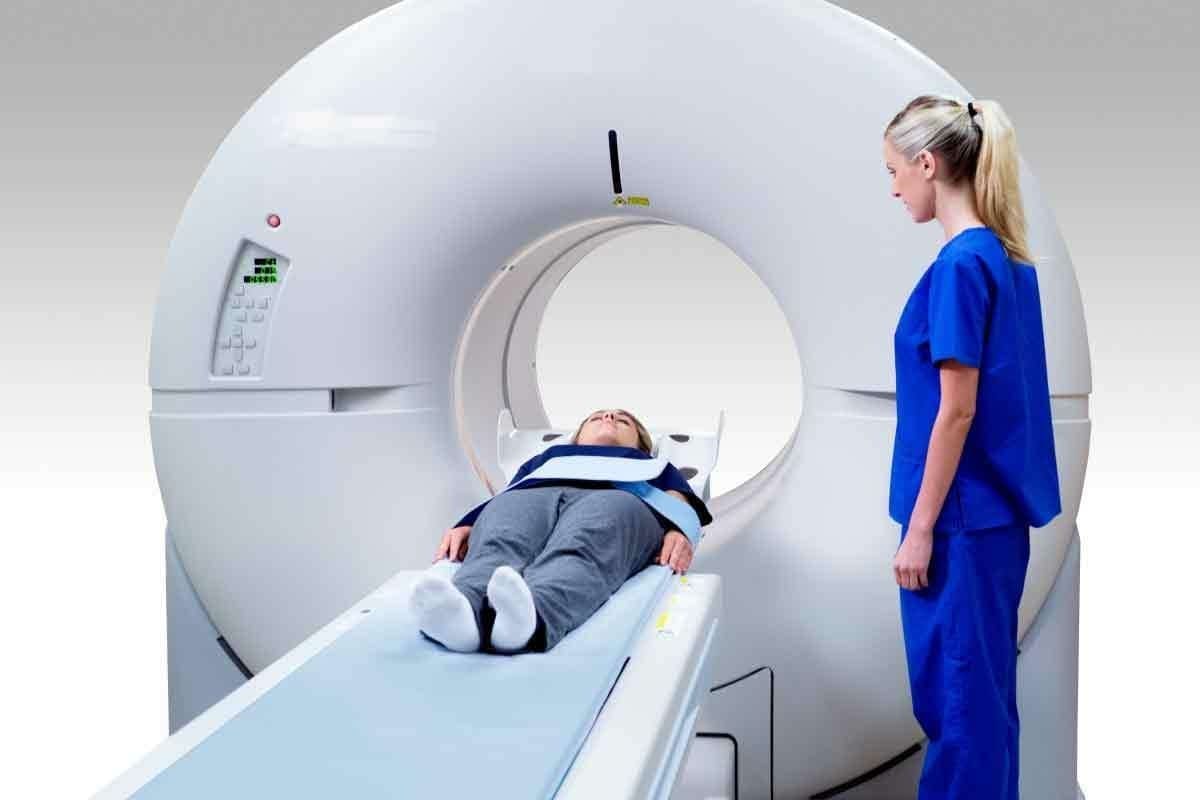Last Updated on November 27, 2025 by Bilal Hasdemir

It’s vital for men to spot the early signs of cancer to protect their health. Look out for unexplained lumps, persistent coughs, or sudden weight loss. These could be warning signs.
Recent data shows that one in two men will get cancer at some point. Catching it early is key to better survival chances. At Liv Hospital, we focus on quick, effective care for our patients.
We’ll look at the 15 early signs of cancer men should watch for. Our goal is to help you spot health risks early and act fast.
Key Takeaways
- Knowing the early signs of cancer can lead to quick medical help.
- One in two men will get cancer in their lifetime.
- Liv Hospital puts patients first in cancer care.
- Early detection is key to better cancer survival rates.
- Men should watch for unusual lumps, persistent coughs, and sudden weight loss.
Why Early Detection Is Critical for Men’s Cancer Survival
Early detection is key to beating cancer for men. It boosts survival rates. Catching cancer early means treatments work better, and survival chances go up.
Talking about cancer can be tough, but it’s vital. Timely diagnosis opens up more treatment paths and leads to better results. Men need to know the signs and symptoms of cancer.
The Impact of Timely Diagnosis on Treatment Outcomes
Studies prove early cancer detection boosts treatment success. For example, early prostate cancer detection means a nearly 100% five-year survival rate. But, late-stage cancer makes treatment harder, lowering survival rates.
Effective treatment often comes from catching cancer early. Early cancers usually respond well to surgery, chemo, and radiation. So, men diagnosed early have a higher chance of beating cancer.
Current Cancer Statistics for American Men
Cancer stats in the U.S. show men need to be more aware and get checked early. Men are more likely to die from cancer because they often get diagnosed late.
The top cancers in men are prostate, lung, and colorectal. Prostate cancer is a big concern, with many new cases each year. Knowing these facts and the value of early detection can motivate men to take care of their health.
By staying informed and taking action, men can greatly increase their cancer survival chances. We stress the need for regular health checks and screenings to catch cancer early.
First Signs of Cancer in Men: The 15 Warning Signals
The first signs of cancer in men are not always obvious. Yet, there are 15 key warning signals that should not be ignored. Cancer can show up in many ways. Knowing these early signs is key for getting medical help on time. We will look at these warning signals, helping men know when to see a doctor.
Unexplained Weight Loss
Unexplained weight loss is a big and often missed symptom of cancer in men. Losing weight without diet or exercise changes can signal cancers like pancreatic, stomach, or lung cancer. If you lose a lot of weight quickly, see a healthcare professional.
Persistent Fatigue
Persistent fatigue, or feeling very tired all the time, is another early sign of cancer. It’s not just tiredness after a long day. It’s a deep, lasting tiredness that doesn’t get better with rest. Cancer-related fatigue can be a sign of several cancers, like leukemia and lymphoma. If you’re always tired, talk to your doctor.
Unusual Lumps or Swelling
Unusual lumps or swelling in any body part can be a cancer sign. Men should watch for any changes in the testicles, as testicular cancer can show as a painless lump or swelling. Regular self-checks and awareness can help catch it early.
Other warning signs to watch for include:
- Changes in skin, such as new moles or changes in existing moles
- Persistent cough or hoarseness
- Difficulty swallowing or persistent indigestion
- Changes in bowel habits or urinary patterns
- Unexplained pain that persists
Being alert to these signs and getting medical advice when needed can greatly improve cancer treatment results. We suggest being proactive about your health. If you notice any of these warning signals, don’t hesitate to see a healthcare professional.
Urinary and Reproductive System Cancer Symptoms
It’s important for men to know the signs of urinary and reproductive system cancers. These cancers can harm men’s health. Spotting the warning signs early is key.
Changes in Urination Patterns
Urinary system cancers, like bladder or prostate cancer, can cause changes in how you pee. You might notice:
- Frequent urination
- Weak or interrupted flow
- Pain or burning during urination
- Difficulty starting or stopping urination
These signs could mean you need to see a doctor. Studies show that catching prostate cancer early can reduce death risk by up to 50% as reported in a study.
Blood in Urine or Semen
Seeing blood in your pee or semen is a big warning sign. It could mean you have cancer in your urinary or reproductive system. This includes bladder, kidney, or testicular cancer.
Testicular Changes
Testicular cancer often shows up as changes in the testicles. You might see:
- A lump or swelling in the testicle
- Pain or discomfort in the testicle or scrotum
- A feeling of heaviness in the scrotum
Watching for these changes and getting medical help fast can help catch and treat cancer early.
Digestive and Gastrointestinal Warning Signs
It’s important for men to know the signs of digestive and gastrointestinal cancers. These cancers can show symptoms that are often missed until they get worse. We’ll look at these signs closely to help catch them early.
Changes in Bowel Habits
One early sign of digestive cancer is changes in bowel habits. You might notice constipation, diarrhea, or changes in stool consistency. If these changes last, see a doctor right away. Doctors say, “Early detection is key to treating bowel cancer effectively.” Learn more about colon cancer symptoms.
Persistent Abdominal Pain or Discomfort
Persistent pain or discomfort in the abdomen can be a sign of gastrointestinal cancer. This pain might be steady or come and go, and it can vary in intensity. Don’t ignore this symptom, as it could mean you need medical help.
Rectal Bleeding or Blood in Stool
Seeing blood in your stool or experiencing rectal bleeding is a serious symptom. It could mean colorectal cancer or another condition. If you see blood in your stool, get medical help fast.
Difficulty Swallowing
Difficulty swallowing, or dysphagia, can be a sign of esophageal cancer. If you find it hard to swallow or feel like food is stuck, see a doctor.
Knowing these signs can help men get medical help early. This can lead to better treatment outcomes. We urge everyone to watch their health and see a doctor if they notice any of these symptoms.
Respiratory and Chest Symptoms of Cancer in Men
Knowing the signs of respiratory and chest problems linked to cancer is key. It helps catch cancer early, which is vital for treatment success. These symptoms are important signs, including for lung cancer.
Chronic Cough That Won’t Go Away
A cough that lasts more than a few weeks might mean something serious, like cancer. If you cough up blood or rust-colored mucus, see a doctor right away.
Shortness of Breath
Feeling out of breath even when you’re not doing much is a warning sign. It could mean lung cancer or other cancers. Always check with a doctor if you feel this way.
Chest Pain or Discomfort
Chest pain can feel like a sharp stab or a dull ache. Any unusual feeling in your chest could be cancer. It’s important to notice these signs.
Coughing Up Blood
Coughing up blood or rust-colored sputum is very serious. It could mean lung cancer or other lung problems. You need to see a doctor fast.
It’s vital to know these symptoms and take care of your health. If you have any of these signs, see a doctor. They can help find out what’s wrong and how to fix it.
Key Takeaways:
- Be aware of persistent respiratory symptoms.
- Don’t ignore chronic cough, shortness of breath, chest pain, or coughing up blood.
- Early detection improves cancer treatment outcomes.
“The earlier cancer is detected, the better the chances of successful treatment. Being aware of and acting on respiratory and chest symptoms can be lifesaving.”
Skin Changes and External Cancer Indicators
Skin changes are key signs of cancer in men. It’s important to know what to look for. The skin shows our health, and changes can mean trouble.
Unusual Moles or Pigmentation Changes
Unusual moles or changes in skin color are common signs of skin cancer. Watch for moles that are not symmetrical or have irregular edges. Also, moles with different colors are a red flag.
Key characteristics to watch for include:
- Asymmetry
- Irregular borders
- Multiple colors or uneven color distribution
- Large diameter (typically larger than 6mm)
Yellowing of Skin or Eyes (Jaundice)
Jaundice, or yellow skin or eyes, is a serious sign. It happens when bilirubin builds up, often due to liver or bile duct problems. These can be signs of cancers like pancreatic or liver cancer.
It’s essential to seek medical attention if you notice:
- Yellowing of the skin or eyes
- Dark urine
- Pale stools
Excessive Bruising or Bleeding
Too much bruising or bleeding can mean a problem. It might be related to blood or bone marrow cancers. It’s a sign to see a doctor.
Notable signs include:
- Frequent or unexplained bruising
- Prolonged bleeding from cuts or injuries
- Nosebleeds or bleeding gums
Knowing about these signs can help catch cancer early. Men should watch their skin and see a doctor if they notice anything odd.
Subtle Early Cancer Signs Men Often Ignore
Men often miss early signs of cancer that could save their lives. They know about common symptoms, but ignore the subtle ones. It’s key to be alert and see a doctor early.
Persistent Low-Grade Fever
A low-grade fever is a temperature a bit higher than normal that lasts more than a few days. It might signal cancer, like lymphomas or leukemias. Seeing a doctor is important if you have a fever that won’t go away.
“A low-grade fever can be a sign that something is amiss in the body. It’s often overlooked but can be an early warning sign of cancer.”
Night Sweats
Night sweats are drenching sweats at night that can hint at cancer, like lymphoma. If you wake up with soaked clothes or bedding, talk to your doctor.
Unexplained Pain That Doesn’t Go Away
Persistent pain without a clear reason can be cancer. It might be from a tumor pressing on nerves or organs. Get medical help if you have pain that won’t go away.
| Type of Pain | Possible Cancer Association |
|---|---|
| Back Pain | Spinal or pancreatic cancer |
| Abdominal Pain | Liver, stomach, or colon cancer |
| Headaches | Brain tumors |
Changes in Lymph Nodes
Swollen or enlarged lymph nodes can mean cancer, like lymphomas. Lymph nodes help fight infections. Get checked by a doctor if your lymph nodes are swollen or hard.
Knowing these early signs can help catch cancer early. If you notice any symptoms, don’t wait to see a doctor.
Most Common Cancers for Men and Their Specific Symptoms
We will explore the specific symptoms of the most common cancers affecting men, including prostate, lung, and colorectal cancer. Understanding these symptoms is key for early detection and effective treatment.
Prostate Cancer Warning Signs
Prostate cancer is a common cancer among men. Knowing its warning signs can lead to early diagnosis and treatment. Some key symptoms include:
- Frequent urination, often at night
- Weak or interrupted urine flow
- Pain or burning while urinating
- Blood in urine or semen
- Pain in the back, hips, or chest
The American Cancer Society notes, “Prostate cancer is the most common cancer in men other than skin cancer.” Early detection is key to effective treatment.
Lung Cancer Early Indicators
Lung cancer is common among men, and its early signs can be subtle. Watch out for these symptoms:
- A persistent cough that doesn’t go away
- Coughing up blood or rust-colored mucus
- Chest pain that worsens with deep breathing, coughing, or laughing
- Shortness of breath
- Recurring respiratory infections
Lung cancer symptoms can be misleading, often resembling other respiratory conditions. It’s vital to see a healthcare professional if you experience any of these symptoms.
Colorectal Cancer Initial Symptoms
Colorectal cancer affects the colon or rectum and can be caught early through screening. Initial symptoms may include:
- A change in bowel habits, like diarrhea or constipation
- Blood in or on the stool
- Abdominal pain or cramping
- Weakness or fatigue
- Unexplained weight loss
The National Cancer Institute emphasizes the importance of screening: “Screening can help find colorectal cancer early, when it’s more treatable.”
| Cancer Type | Common Symptoms |
|---|---|
| Prostate Cancer | Frequent urination, weak urine flow, pain while urinating |
| Lung Cancer | Persistent cough, coughing up blood, chest pain |
| Colorectal Cancer | Change in bowel habits, blood in stool, abdominal pain |
Testicular and Bladder Cancer Signals
Testicular and bladder cancers are less common but significant. Testicular cancer often presents as a painless lump or swelling in the testicle. Bladder cancer may cause symptoms like blood in the urine, frequent urination, and pain while urinating.
Being aware of these symptoms can help men seek medical attention early, improving their chances of successful treatment. We encourage men to be proactive about their health and consult healthcare professionals if they experience any unusual symptoms.
Conclusion: Taking Action When You Notice Cancer Symptoms
Spotting cancer signs early is key to better treatment. We urge men to act fast if they notice any unusual symptoms. This is the first step towards getting help.
Acting quickly can really help with cancer treatment. Knowing the warning signs lets men get help right away. This can make a big difference in their health.
It’s important to seek medical help if you notice cancer symptoms. We advise men to talk to doctors if they see any signs. Quick action can lead to better treatment results.
Being aware of health issues is vital. Men can take charge of their health by knowing the signs. We aim to offer top-notch healthcare to everyone, including international patients.
FAQ
What are the most common cancer symptoms in men?
Men should watch for symptoms like unexplained weight loss and persistent fatigue. Also, look out for unusual lumps or swelling, changes in urination, and blood in urine or semen. These signs can point to different cancers.
What are the early signs of prostate cancer?
Signs of prostate cancer include trouble urinating and a weak or interrupted flow. Also, frequent urination, pain, or burning during urination are warning signs. If you notice these, see a doctor right away.
How can men identify potentially lung cancer symptoms?
Look out for a chronic cough that won’t go away and shortness of breath. Chest pain or discomfort and coughing up blood are also signs. These symptoms could mean lung cancer.
What are the warning signs of colorectal cancer?
Symptoms of colorectal cancer include changes in bowel habits and persistent abdominal pain. Also, look for rectal bleeding or blood in stool and difficulty swallowing. If you have these symptoms, get medical help.
Can testicular cancer be detected early?
Yes, testicular cancer can be caught early. Watch for lumps or swelling, pain, or discomfort in the testicles. Also, notice any changes in the size or consistency of the testicles. If you see these, see a doctor.
What are the symptoms of bladder cancer?
Symptoms of bladder cancer include blood in urine and frequent urination. Also, pain or burning during urination and difficulty urinating are signs. If you have these symptoms, get medical help.
Are there any subtle early signs of cancer that men often ignore?
Yes, men often ignore early signs like a persistent low-grade fever and night sweats. Also, unexplained pain and changes in lymph nodes are signs. Being aware of these can help catch cancer early.
How can men reduce their risk of developing cancer?
Men can lower their cancer risk by living a healthy lifestyle. Eat well, exercise regularly, and avoid tobacco. Also, regular check-ups and screenings can help find cancer early.
What should men do if they notice unusual or persistent symptoms?
If you notice unusual or persistent symptoms, see a doctor. Early detection and treatment can greatly improve cancer outcomes.
Can skin changes be a sign of cancer?
Yes, skin changes like unusual moles or pigmentation changes can be cancer signs. Also, yellowing of the skin or eyes (jaundice) and excessive bruising or bleeding are warning signs. If you notice these, get medical attention.
References
Cancer Research UK. Cancer Symptoms. https://www.cancerresearchuk.org/about-cancer/cancer-symptoms
Prevent Cancer Foundation. Men, Don’t Ignore These Common Cancer Symptoms. https://preventcancer.org/article/men-dont-ignore-these-common-cancer-symptoms/
WebMD. 15 Cancer Symptoms Men Shouldn’t Ignore. https://www.webmd.com/cancer/features/15-cancer-symptoms-men-ignore








